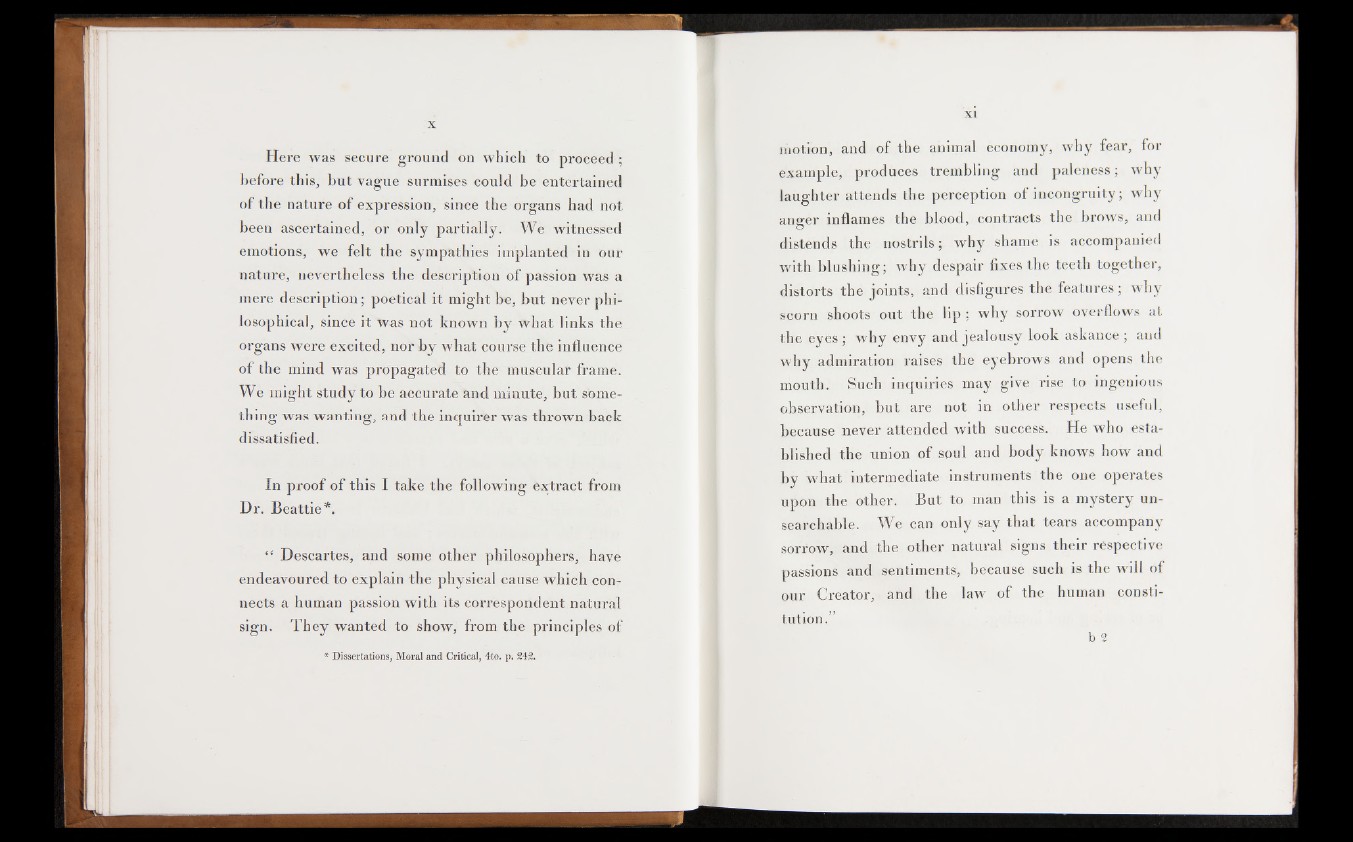
Here was secure ground on which to proceed ,;
before this, but vague surmises could be entertained
of the nature of expression, since the organs had not
been ascertained, or only partially. We witnessed
emotions, we felt the sympathies implanted in our
nature, nevertheless the description of passion was a
mere description; poetical it might be, but never philosophical,
since it was not known by what links the
organs were excited, nor by what course the influence
of the mind was propagated to the muscular frame.
We might study to be accurate and minute, but something
was wanting, and the inquirer was thrown back
dissatisfied.
In proof of this I take the following extract from
Dr. Beattie*.
“ Descartes, and some other philosophers, have
endeavoured to explain the physical cause which connects
a human passion with its correspondent natural
sign. They wanted to show, from the principles of
* Dissertations, Moral and Critical, 4to. p. 242.
motion, and of the animal economy, why fear, for
example, produces trembling and paleness; why
laughter attends the perception of incongruity; why
anger inflames the blood, contracts the brows, and
distends the nostrils; why shame is accompanied
with blushing; why despair fixes the teeth together,
distorts the joints, and disfigures the features; why
scorn shoots out the lip ; why sorrow overflows at
the eyes ; why envy and jealousy look askance ; and
why admiration raises the eyebrows and opens the
mouth. Such inquiries may give rise to ingenious
observation, but are not in other respects useful,
because never attended with success. He who established
the union of soul and body knows how and
by what intermediate instruments the one operates
upon the other. But to man this is a mystery unsearchable.
We can only say that tears accompany
sorrow, and the other natural signs their respective
passions and sentiments, because such is the will of
our Creator, and the law of the human constitution.”